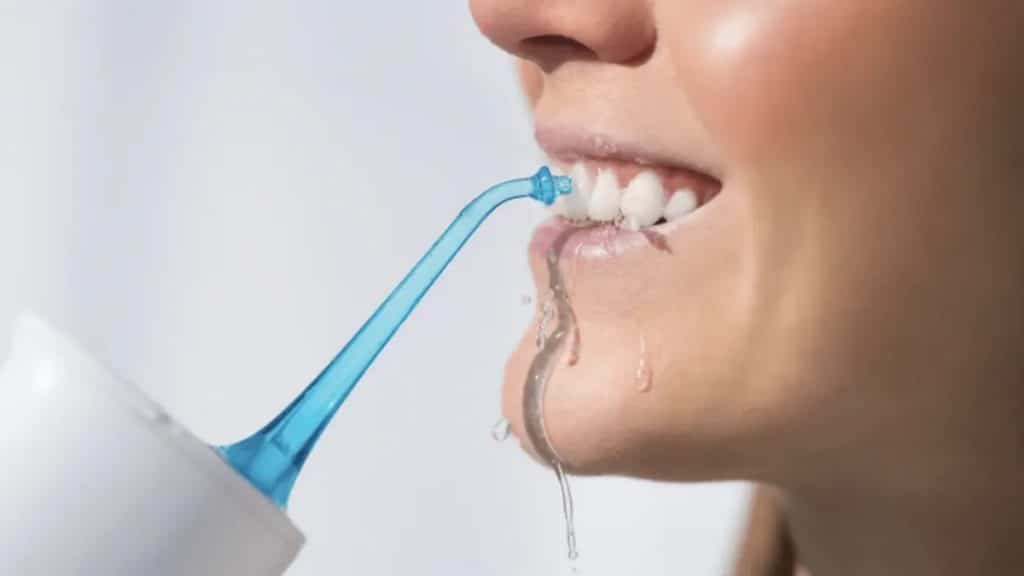Brushing your teeth is a must, but flossing is equally important for a sparkling smile and healthy mouth. With flossing as a part of your oral routine, you get to target areas between teeth where brushing can’t reach, removing food particles and plaque buildup that can lead to cavities and gum disease.
However, water flossers have indeed achieved popularity and fame as one of the most useful tools for keeping the health of teeth, tongue and gum satisfactory. Unlike brushing or dental floss, these flossers make use of water at varying pressures with the aim of cleaning between teeth with the gum line. Learn more about the benefits of using water flossers and their necessity in the oral hygiene regimen.
Adding Water Flosser into Oral Hygiene Routine
Your mouth is raising ground for germs, and it’s your daily oral hygiene routine that can keep your mouth fresh and clean. So, how can you maintain a proper daily oral routine?
It’s all about incorporating water flossers into your oral care regimen, which is simpler than brushing.
A water flosser, sometimes referred to as an oral irrigator or dental water jet, is a tool that cleans in between your teeth and under your gum line using a pressurised stream of pulsating water.
You might end up with a little mess at the beginning, yet shifting to water flossers has an enormous advantage on your oral health. This will help to get rid of accumulated plaque in the areas that are not accessible with a toothbrush. Thus, water flossers are highly important as part of your daily oral hygiene routine.
Benefits Of Using a Water Flosser: Your Daily Oral Hygiene Routine
Water flossing has innumerable benefits, and it improves the poor dental condition. Let’s explore some of them:
1. Uncomplicated to Operate
With an electric water flosser, all you have to work on is to switch it on and off and allow the water to flow to your teeth to remove food residue and plaque. Along with it, there is a button that can be used to adjust the pressure of the water to stream.
2. Avoid Bleeding of the Gum
If you have sensitive gums, try to use a water flosser. Using the control dial on your flosser, you can set the pressure to your comfort level, which will not harm your gums. As you become accustomed to it, you can adjust the water volume to avoid hurting your gums and causing bleeding.
A recent study shows that using an electric water flosser is more effective than using an interdental brush in reducing gum bleeding.
3. Flush Out Foods between your Teeth
Using a water flosser ensures you won’t feel uncomfortable or self-conscious about food stuck between your teeth. As suggested by dentists, a water flosser can reach deep between your teeth and gums to remove all food debris. Therefore, using a water flosser is one of the best ways to remove significantly more plaque from your teeth.
4. Remove Tartar and Plaque
Daily flossing with a water flosser prevents the acid from food from solidifying into plaque or tartar. This helps keep your gums free from disease, as tartar, which is hardened plaque, can cause discomfort and lead to gum bleeding. Without regular flossing, you risk serious dental issues such as periodontitis.
5. No Risk of Tooth loss
In addition to maintaining gum health and removing plaque, water flossers reduce the risk of tooth loss by improving overall oral health.
Tips and Tricks: Water Flosser Usage
- Do not close your mouth while using the water flosser. Keep your mouth open and stare directly into your sink to allow the water to drip back down the drain.
- Begin with the pressure set on low and then gradually increase it as per your convenience.
- Try to use lukewarm water to avoid extreme sensitivity.
- To avoid any mess, you can use it during your shower.
Pro Tip!
Adding a water flosser into your dental care regimen can give a complete cleaning experience. You can achieve healthy teeth and gums and, of course, can lessen visits to dentists for poor dental hygiene.
Wrapping Up
One of the best ways to maintain a clean mouth is water flossing, whether you’re battling against gum disease or maintaining dental implants. Therefore, make it a habit and include a water flosser in your daily oral hygiene routine. Remember, consistent use of a water flosser not only keeps your gums healthy but also contributes to overall better oral hygiene. It reduces plaque from teeth, thus the likelihood of tooth loss and other dental problems like gingivitis. Invest in a water flosser today for a cleaner, healthier smile!
